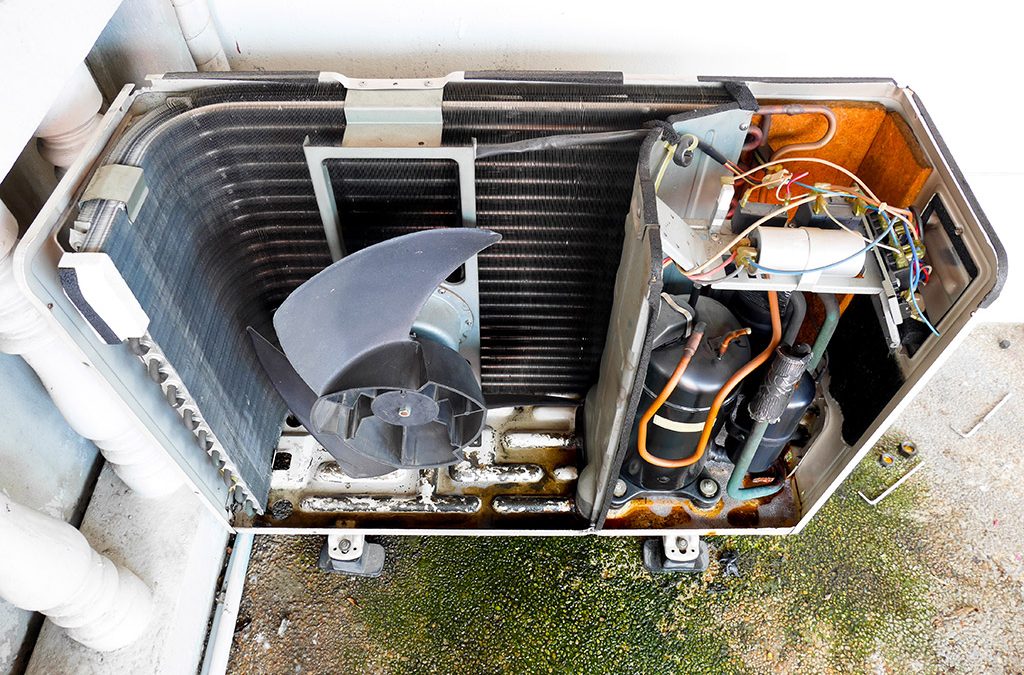Although you might be tempted, it is strongly advised against trying to fix your air conditioner yourself. Being unskilled, you run the risk of further your body’s damage, being shocked, getting cut on sharp edges, or even coming into contact with harmful chemicals. Have the services of the Singapore aircon experts instead. Below is a detailed guide about compressor problems so that you can know what’s wrong with your compressor.
3 major signs of bad compressor:
1. Compressor refuses to start:
Check your breaker box to make sure the unit is receiving electricity. It’s time to call in the experts to identify the problem if there is power and the fan is still running but no cool air is flowing out. Any variety of issues that can only be identified and resolved by a qualified HVAC technician could be the cause of a compressor that won’t turn on.
2. The machine is blowing warm air:
Even when your system is operating, if all you can feel is warm air, your compressor may be failing. There are other potential causes for the system to be blowing heated air, such as a refrigerant leak. It’s best to contact a qualified HVAC service company to get the issue correctly diagnosed.
3. Compressor is making weird noises:
When they work, AC compressors normally emit a small amount of noise. But if yours is generating noises that seem odd or out of the ordinary, that’s a certain sign that something is wrong with your system. Unusual noises may be a sign of a failing compressor. They might also indicate a loose fan motor, deteriorating electrical components, or other problems.
A noisy air conditioner compressor’s evaluation:
It’s not as hard to identify a noisy air conditioner compressor as it would first appear. However, you should get the system examined right away by a dependable air conditioning professional if you hear any of the following noises emanating from your air conditioning compressor:
- Banging or clanking noises frequently signify a loose internal part, such as a piston pin or connecting rod. Breakdown of the compressor motor’s bearings may be indicated by clanking or rattling noises.
- Refrigerant tubing that is loose, fasteners that are loose, or a damaged spring are frequently to blame for clicking, rumbling, or ticking noises. An electrical relay next to the compressor may be failing if you hear frequent clicking or buzzing noises.
- Humming sounds could be a sign that the unit’s oil level is low. Although it’s uncommon with tightly closed machines, oil leakage could still be found close to the compressor. It’s common to hear a little bit of screeching from the compressor, but if it continues to get louder over time, get in touch with a contractor right away.
- Turn the system off right away if a noisy air conditioner compressor starts hissing or screaming. It’s possible that the unit’s internal pressures are getting too high, making it dangerously risky to run. A refrigerant leak is most frequently indicated by a hissing sound; the stronger the hiss, the worse the issue.
It’s frequently required to swap out this component with a new compressor because the majority of today’s air conditioning compressors are sealed ones. It is advisable to leave assessment and fixes in the capable hands of a qualified and reputable contractor who has the necessary equipment and industry expertise.
Other compressor problems:
The delicate heart of AC that is compressors require careful monitoring and maintenance. A little issue might quickly set off a chain of problems that could finally permanently disable your AC compressor. Following are some other problems that are commonly experienced by compressor:
1. Motor problems:
With a damaged motor, your AC compressor will not function. If an electrical circuit is damaged by an overload of electricity, the motor will stop working. Your motor isn’t completely dead and done just yet, though. If there is an electrical issue, the motor will often trip. Locate the “reset” button that is situated next to the motor, then press it to reset it.
2. Burn out:
When this occurs, the compressor in your air conditioner is unable to turn on because it isn’t just an electrical trip this time. It is typically brought on by wire damage to the motor. The damage then causes a power failure between the motor and compressor components. In extreme circumstances, you can experience an explosion.
3. Shutting down:
Your AC compressor has trouble starting at this point. It’s possible that your air conditioner will start, shut off, and then restart before it can operate continuously. First, make sure that the fuse is still operational. If not, you must replace it. Next, check the wiring system of the compressor for damage and make repairs if necessary. It would be preferable to employ an expert who specializes in AC to handle it if you have no prior expertise handling these types of repairs.
4. Bad cooling:
Your air conditioner may not be cooling as well as it once did, as you may have noticed. Additionally, you’ve noticed that your AC compressor has begun making strange noises at night. It’s possible that your AC compressor is having trouble controlling the pressure in the system. Keep in mind that pressure is required to cool and determine the refrigerant’s flow direction.
Another possibility is that your AC compressor is worn out and aged. As a result, it is unable to operate as effectively as it once could. If these age-related problems with your AC are a frequent problem, it may be time to replace it.

